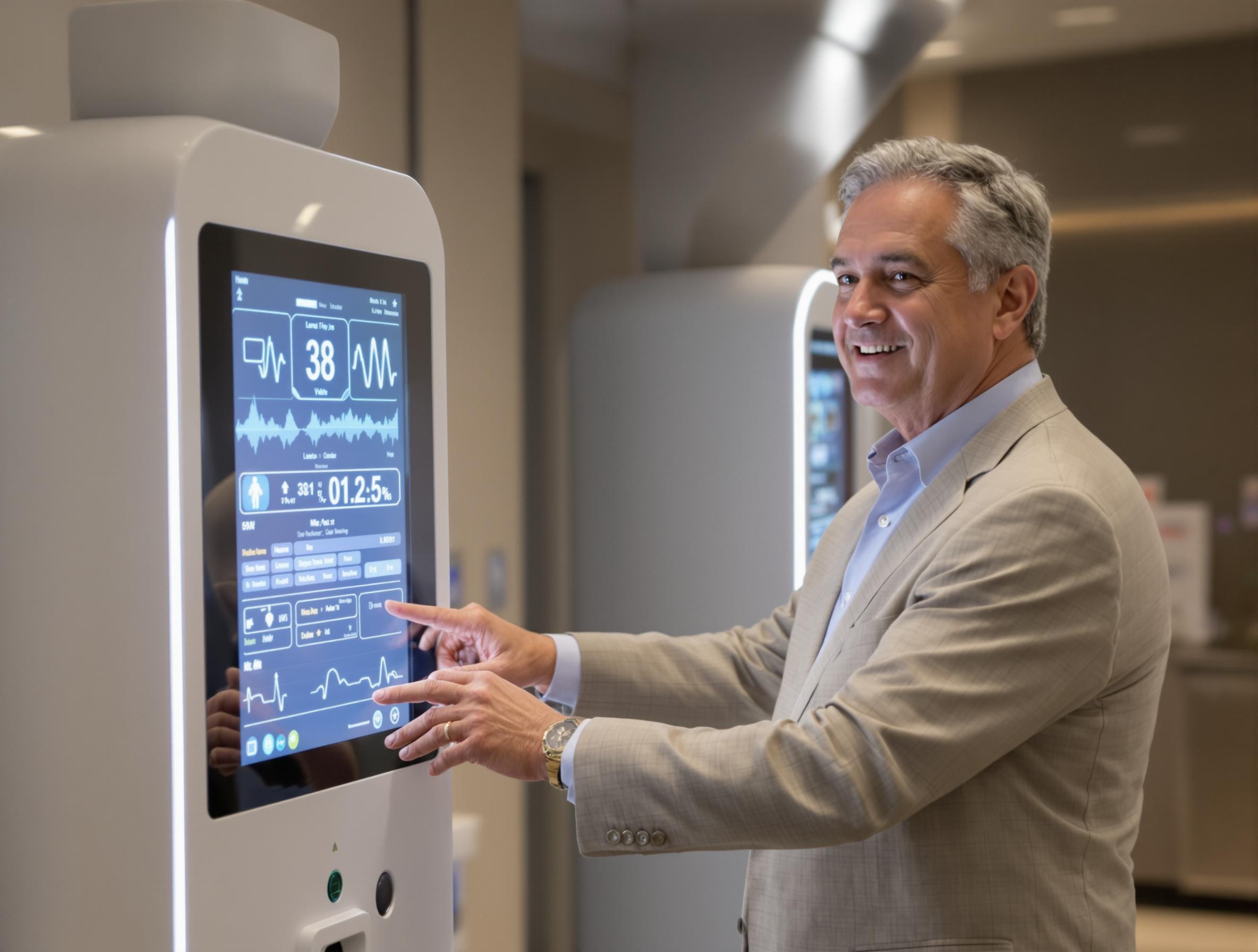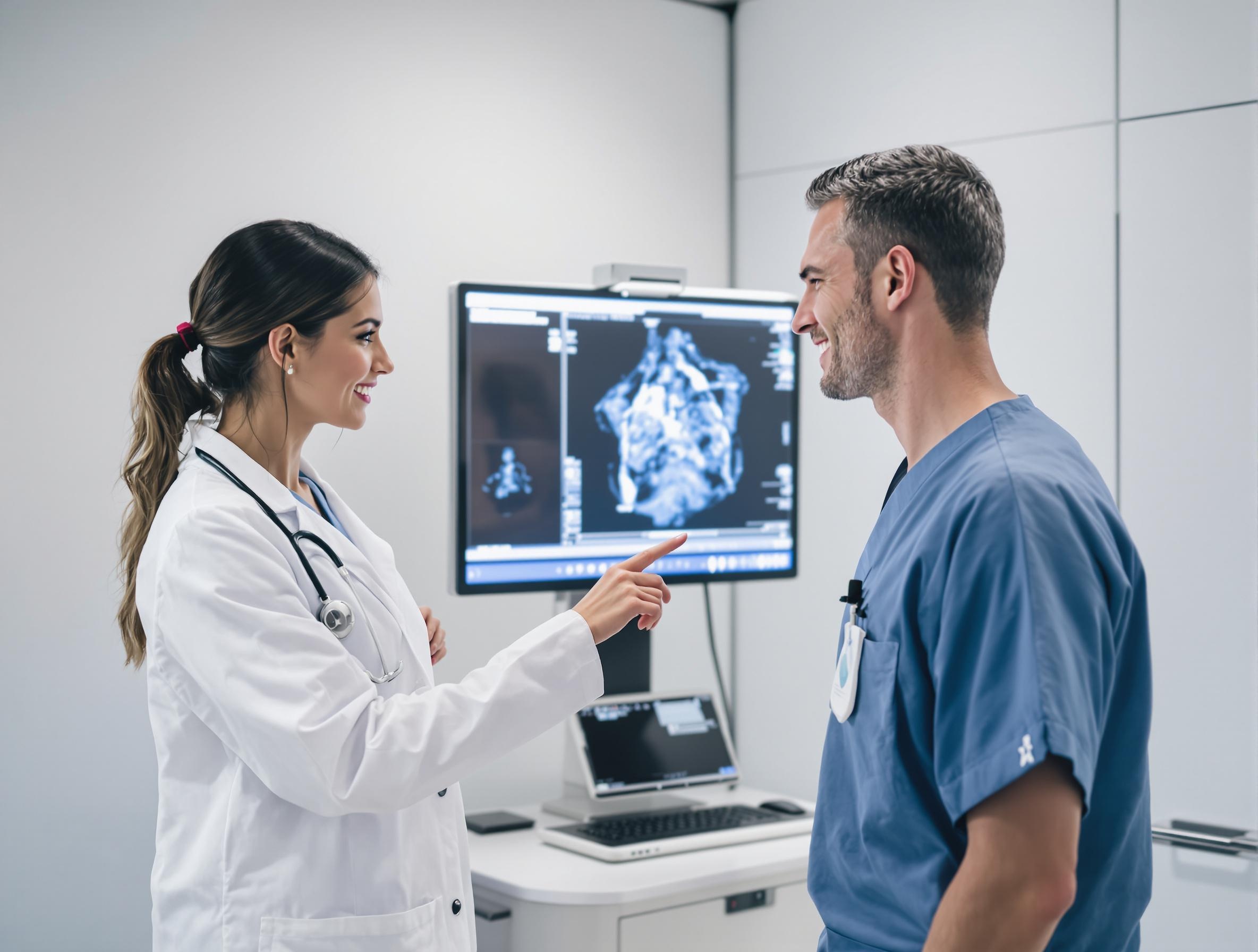Top 5 High Blood Pressure Symptoms You Should Be Aware Of

Key Takeaways:
- High blood pressure often has no obvious symptoms, making it essential to monitor your health regularly.
- The top 5 warning signs of hypertension include headaches, dizziness, and chest pain.
- Mobile Care Health offers tools to help you track your blood pressure and stay on top of your health.
High blood pressure can go unnoticed until it causes severe damage to your heart, brain, and kidneys. Unlike other health conditions that have clear signs, hypertension may not present any symptoms until it’s too late. The scary part? By the time you feel symptoms, the damage may already have begun.
That’s why it’s crucial to stay vigilant. By recognizing the symptoms early, you can take action to lower your blood pressure before it leads to bigger health issues. Thankfully, Mobile Care Health can support your overall health by providing the tools to manage and improve your well-being.
With access to resources like personalized guidance, health support, and a holistic approach to care, Mobile Care Health helps you take proactive steps toward a healthier lifestyle. This comprehensive approach ensures you can make the right choices for your health and long-term wellness.
Top 5 High Blood Pressure Symptoms
1. Headaches: The Silent Warning Signal
Headaches are a common complaint, but they are often more intense and frequent when associated with high blood pressure.
These aren’t just your typical tension headaches; they are the kind of headaches that start at the back of your head and feel much more severe. They can often occur first thing in the morning, right after you wake up, and may persist throughout the day.
The mechanism behind these headaches is thought to be linked to the increased pressure on your brain’s blood vessels caused by hypertension. When the pressure in the blood vessels becomes too high, it can trigger pain in the head and neck area.
This is especially concerning when the headaches become more intense or frequent, as it could indicate a hypertensive crisis, where blood pressure spikes to dangerous levels.
If you experience these kinds of headaches, especially when combined with other symptoms, it’s time to get your blood pressure checked. Early detection is key, and being cautious about your heart and brain health is always better.
2. Dizziness or Lightheadedness: Feeling Unsteady?
Dizziness or feeling lightheaded is another common symptom of high blood pressure, especially when standing up quickly or after sudden movements.
The root cause of this symptom is that high blood pressure can affect blood flow to the brain, leading to unsteadiness or vertigo. This sensation occurs because the blood vessels are under strain, preventing adequate blood flow to the brain, making you feel lightheaded or off balance.
If you’ve noticed that you often feel dizzy or lightheaded, particularly after standing up quickly, it may be a sign that your blood pressure isn’t where it should be. This symptom is often more pronounced when you rise from a sitting or lying position, as your body works harder to adjust to the change in posture.
If these episodes of dizziness are frequent or severe, it’s important to have your blood pressure measured and monitored, as it could be a sign that your hypertension is progressing and affecting your overall circulatory health.
3. Chest Pain: A Red Flag You Should Never Ignore
Chest pain is always a red flag, and when it’s related to high blood pressure, it usually indicates that your heart and arteries are under significant stress. Over time, high blood pressure can damage the walls of your arteries, causing them to narrow and stiffen.
This means your heart has to work harder to pump blood through these restricted arteries, leading to angina (pain in the chest) or even more severe conditions like heart attacks or heart failure.
The pain associated with high blood pressure may not always feel like the classic “crushing” pain that’s often depicted in movies, but it can still be sharp, tight, or discomforting. It may be more noticeable during physical activity, emotional stress, or after a meal.
If you experience chest pain—especially if it’s accompanied by other symptoms like shortness of breath, nausea, or cold sweats—it’s crucial to seek immediate medical attention. Chest pain is a clear warning sign that something is wrong with your heart, and addressing it as soon as possible is essential to prevent serious complications.
4. Blurry Vision: When Your Eyes Are Affected
Many people find it surprising that blurry vision can be a symptom of high blood pressure, but the connection is real. Over time, high blood pressure can damage the blood vessels in your eyes, a condition known as hypertensive retinopathy.
The increased pressure in the bloodstream can cause these small blood vessels in the retina to break, bleed, or become narrowed, resulting in vision disturbances.
If you notice any sudden changes in your vision, such as blurriness or difficulty seeing clearly, it’s important to get your blood pressure checked. This is especially true if other symptoms like headaches or dizziness accompany the blurry vision.
The longer high blood pressure goes unchecked, the greater the potential for more severe damage to the eyes, including permanent vision loss. It’s also worth noting that blurry vision might not always be directly caused by high blood pressure—it could be a sign of other underlying conditions like diabetes—but it’s always a good idea to monitor your blood pressure to rule out any issues.
5. Shortness of Breath: Struggling for Air?
Shortness of breath, or dyspnea, can be a common and concerning symptom of high blood pressure. When blood pressure is high, it forces the heart to work harder to pump blood through the arteries.
This increased strain on the heart can eventually lead to heart failure, a condition in which the heart is no longer able to pump blood efficiently to meet the body’s needs. As a result, you may feel winded, especially when engaging in physical activity or even during simple tasks like climbing stairs or walking around the house.
If you experience shortness of breath during activities that didn’t used to tire you out, this could be a sign that your blood pressure is affecting your heart’s ability to pump efficiently. This symptom should never be ignored, as it’s a sign that your heart may not function as it should.
Monitoring your blood pressure regularly and working with your healthcare provider to manage hypertension can help prevent further complications related to heart failure and improve your overall quality of life.
Why High Blood Pressure is Often Symptom-Free
One of the most concerning aspects of high blood pressure is that it often doesn’t show noticeable symptoms until it has caused significant damage.
Many people live with high blood pressure for years without realizing it, so it’s essential to check your blood pressure regularly, even if you’re feeling fine. Hypertension can silently damage your organs, especially your heart, kidneys, and eyes.
By staying proactive and monitoring your blood pressure regularly, you can catch any potential issues early and take steps to prevent long-term damage. Mobile Care Health makes it easy to keep track of your numbers, providing you with the insights you need to stay on top of your health.
Take Control of Your Health
High blood pressure is often called the “silent killer” because it can go unnoticed until it causes serious health problems. However, you can catch early warning signs before they become more severe by being aware of the top 5 symptoms of high blood pressure: headaches, dizziness, chest pain, blurry vision, and shortness of breath.
Monitoring your blood pressure regularly is one of the best ways to maintain good heart health. Mobile Care Health is here to support you every step of the way, offering tools and resources to help you manage your blood pressure and live your healthiest life. Stay proactive, and don’t wait until it’s too late—taking care of your heart starts with knowledge and action!
Articles on this site are for general education and do not substitute for professional medical advice. Consult our providers for personalized recommendations





